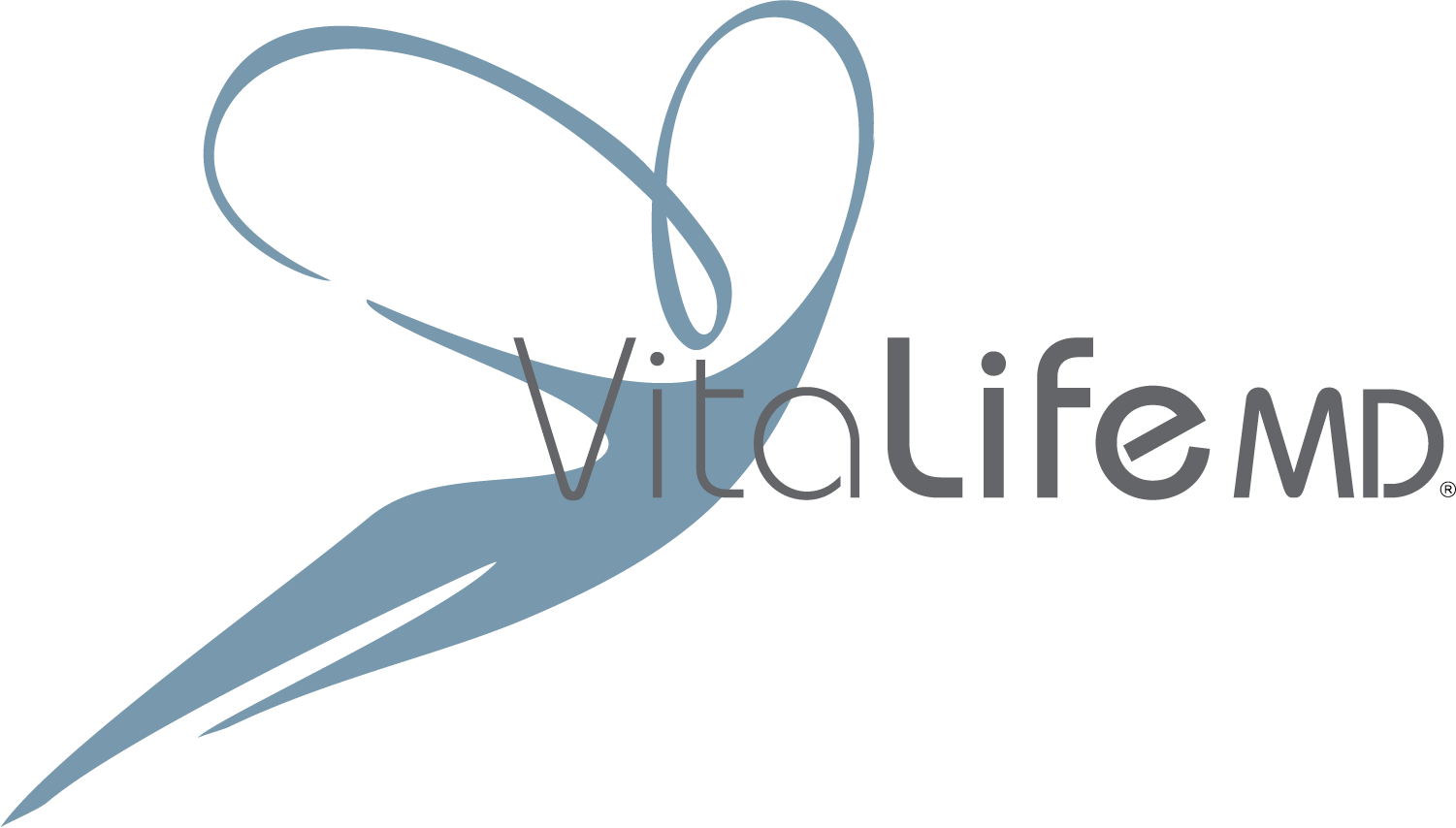Breast Cancer Awareness Month
This month, Dr. Read wants to remind you to get your breast cancer test scheduled and review a few key lifestyle choices that may help reduce your risk of the disease.
Early Detection & Regular Imaging
At VitaLifeMD we offer the Galleri blood test, a new type of cancer screening that can detect up to 50 different types of cancer. The Galleri test is not a replacement for other screenings but an additional test for more accurate prevention.
Mammograms
Dr. Dominique Fradin-Read is board certified in Preventive Medicine, and recommends that her patients follow the guidelines of the US Preventive Task Force for patients on hormones therapy, Dr. Read may recommend a different approach based upon each patient’s risk.
The United States Preventive Services Task Force recommends a Mammogram every other year after 50. Discussion with a physician on the benefit for an earlier mammogram screening will depend on each patient's risk. The USPSTF also recommends an ultrasound instead or in addition to mammogram for women with dense breast tissue. Benefits and risks of regular mammogram screening before age 50 should be weighed for each patient individually. Beginning mammography screenings at a younger age and screening more frequently may increase the risk for over-diagnosis and subsequent over-treatment.
Thermography
At this time, Thermography is still not standard of care. The USPSTF concludes that the current evidence is insufficient to assess the benefits and harms of digital breast tomosynthesis (DBT) as a primary screening method for breast cancer.
I want to emphasize the major goal which is that before screening is to prevent breast cancer with good lifestyle habits. The following is also applicable to help during breast cancer treatment and reduce risk of breast cancer recurrences.
Risk factors include:
Being overweight
For women, being overweight or obese after menopause increases the risk of breast cancer. Having more fat tissue can increase your chance of getting breast cancer by raising estrogen levels. Also, women who are overweight tend to have higher levels of insulin, another hormone also involved in breast cancer risk .
Drinking alcohol
Evidence is consistent that intake, even intake of less than 10–15 grams per day, is associated with increased risk of the disease
Excessive amount of stress
Stress hormones have been shown to be important mediators in driving malignant growth and reducing treatment efficacy in breast cancer.
Source
Poor sleep
Some studies have found that women with lower levels of melatonin, such as those who work the night shift or sleep fewer hours or go to bed too late , have a higher risk of developing breast cancer. Dr. Read takes 20 mg of melatonin of a good brand every night for this purpose!
Smoking
Smoking was associated with a modest but significantly increased risk of breast cancer, particularly among women who started smoking at adolescent ages. The relative risk of breast cancer associated with smoking was greater for women with a family history of the disease or if other risk factors are present.
IVF with high doses of hormones
Controversial data exist regarding the risk of repeated IVF and breast cancer risk Most women who had received more than 6 cycles of HCG or HMG in IVF process, are generally at an estimated 40% risk of developing breast cancer, especially those with positive family history of breast cancer
Don’t forget about a good diet! Eating fruits may be linked to a lower risk of breast cancer
Fruits and Vegetables
Fruits
A meta-analysis that combined the results of 15 studies found women who ate the most fruit had a slightly lower risk of breast cancer compared to women who ate the least fruit [167].
Vegetables
Eating vegetables may be linked to a lower risk of some breast cancers [164-167].
Carotenoids
Carotenoids are natural orange-red food pigments found in fruits and vegetables, such as melons, carrots and sweet potatoes. A diet high in foods that contain carotenoids may be linked to a lower risk of some breast cancers [172-173]. Learn more about fruits, vegetables, carotenoids and breast cancer risk.
Exercise:
Engaging in regular exercise is good for you for many reasons, and one of them is to lower your risk of getting breast cancer. Many studies conducted over the past 20 years have shown consistently that an increase in physical activity is linked to a lower breast cancer risk.
Contact our office with any questions on preventive medicine.
